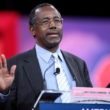Protégé System—Tom DeLay, indicted and awaiting trial in Texas while still making the rounds as a chat-show talking head, recently posted a touching encomium to Denny Hastert, the former Republican House Speaker, on his website. Under the headline “A Genius for Service,” DeLay described Hastert as “a Speaker of the whole House,” observing that “Democrats never had a better friend in leadership.”
Generous comments, but totally disengaged from reality. Hastert was the most partisan Speaker in modern history. It was Hastert (at DeLay’s direction) who instituted the informal “majority of the majority” rule, promising that he would bring no bill to the floor unless it had the support of the majority of Republican members. Never before had a Speaker refused the support of members of the opposition party, a practice that had the effect of imposing parliamentary rules on the House of Representatives and impeding legislation that had bipartisan support.
Hastert (also at DeLay’s direction) made greater use of closed rules than any other Speaker in the past fifty years. Closed rules force members to cast up-or-down votes, with no opportunity to amend legislation. Among the Democrats who “benefited “from Hastert’s benevolence and friendship was Massachusetts Congressman Barney Frank, who described what Hastert and DeLay created as a plebiscitary democracy, in which Representatives could vote yes or no to legislation approved by the leadership. Closed rules were intended to make the minority party irrelevant. When Democratic Speaker Nancy Pelosi temporarily instituted them to enact promised legislation during her first 100 hours, Republican members cried foul.
Hastert was in fact a creation of DeLay, forced into the Speaker’s chair by DeLay himself after the exposure of the serial infidelity of Bob Livingston, DeLay’s first pick to succeed Newt Gingrich. Hastert’s departure, along with that of Ohio’s Deborah Pryce, who chaired the Republican conference while DeLay was majority leader, leaves just one DeLay acolyte in the Republican House leadership: former DeLay deputy Roy Blunt, who is now the minority whip. DeLay, like White House adviser Karl Rove, was a believer in securing a Republican “permanent majority.”
Iran Watch—Does Karl Rove’s exit increase the prospect of war with Iran? Vice President Dick Cheney’s support of tactical air strikes on Iran has been widely reported, and the retirement of Rove could strengthen the vice president’s hand in his debate with State Department moderates who oppose attacking Iran as a first option. Rove’s counterpart in the Office of the Vice President is David Addington, who moved from being the vice president’s legal counsel to a job as his chief of staff when Scooter Libby was indicted. Just as Rove has been described as “Bush’s Brain,” Addington has been referred to as “Cheney’s Cheney.” Addington started his career as a CIA lawyer and has been with Cheney since the two worked together on the Intelligence Committee when Cheney served in the House. With Rove gone, there is no one of stature close to Bush to counter Cheney and Addington, both proponents of attacking Iran.
Rove was the last member of the “Iron Triangle”—Rove, Joe Allbaugh, and Karen Hughes—who followed Bush from Austin to Washington. Yet there never was a triangle. Allbaugh was an undistinguished political appointee in Texas whose singular distinction as director of FEMA was his advancement of the career of his college pal Michael Brown. He’s now at New Bridge Strategies, hustling business for clients trying to turn a profit in Iraq. Hughes was a competent press secretary in Texas but never made much of a mark in Washington. She currently commutes from Austin, flying Southwest Airlines into Baltimore on Mondays and out on Fridays, putting in at best a four-day work-week while holding one of the most important positions at the State Department: under secretary of public diplomacy.
The Iron Triangle was really just Rove. His departure may well give Cheney’s office even more power and thus increases the likelihood of a strike against Iran. Cheney and Addington are supported by think-tank neo-cons, such as Michael Ledeen from the American Enterprise Institute, whose “Talking to Iran” op-ed in the April 18 Wall Street Journal was an attack on advocates of using diplomacy to influence Iran. Ledeen was involved in the Iran-Contra affair and more recently claimed to have evidence that Saddam Hussein had buried enriched uranium under a river bed. The U.S.’s designation of Iran’s Revolutionary Guard Corps as a terrorist organization could be another step toward war.



0 Comments